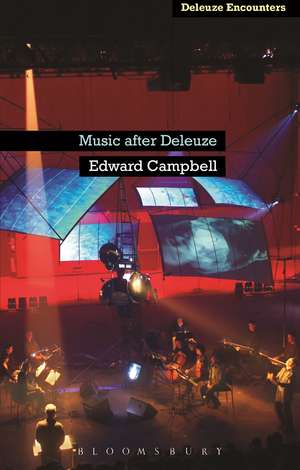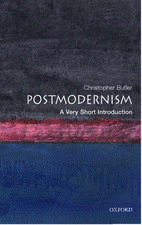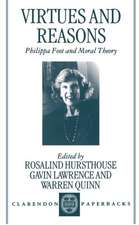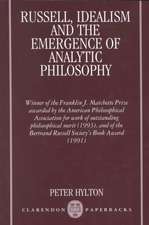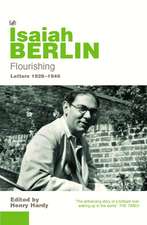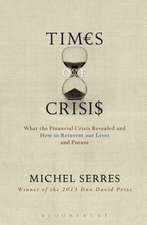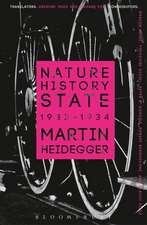Music After Deleuze: Deleuze and Guattari Encounters
Autor Dr Edward Campbellen Limba Engleză Paperback – 6 noi 2013
| Toate formatele și edițiile | Preț | Express |
|---|---|---|
| Paperback (1) | 177.77 lei 6-8 săpt. | |
| Bloomsbury Publishing – 6 noi 2013 | 177.77 lei 6-8 săpt. | |
| Hardback (1) | 596.00 lei 6-8 săpt. | |
| Bloomsbury Publishing – 6 noi 2013 | 596.00 lei 6-8 săpt. |
Preț: 177.77 lei
Preț vechi: 206.98 lei
-14% Nou
Puncte Express: 267
Preț estimativ în valută:
34.02€ • 35.62$ • 28.21£
34.02€ • 35.62$ • 28.21£
Carte tipărită la comandă
Livrare economică 10-24 aprilie
Preluare comenzi: 021 569.72.76
Specificații
ISBN-13: 9781441157027
ISBN-10: 1441157026
Pagini: 208
Dimensiuni: 138 x 216 x 15 mm
Greutate: 0.3 kg
Editura: Bloomsbury Publishing
Colecția Bloomsbury Academic
Seria Deleuze and Guattari Encounters
Locul publicării:London, United Kingdom
ISBN-10: 1441157026
Pagini: 208
Dimensiuni: 138 x 216 x 15 mm
Greutate: 0.3 kg
Editura: Bloomsbury Publishing
Colecția Bloomsbury Academic
Seria Deleuze and Guattari Encounters
Locul publicării:London, United Kingdom
Caracteristici
Takes a more systematic approach than competing texts to show Deleuze's usefulness across musical contexts.
Notă biografică
Edward Campbell is Lecturer in Music at the University of Aberdeen, UK.
Cuprins
AcknowledgementsIntroduction1. Music, Difference and Repetition2. Producing New Music: Rhizomes, Assemblages and Refrains3. Rethinking Musical Pitch: The Smooth and the Striated4. Thinking Musical Time5. A Deleuzian Semiotics of MusicConclusionNotesBibliographyIndex
Recenzii
Edward Campbell shows how philosopher Gilles Deleuze, when contemplating music, can steer musicians productively away from their verbal comfort zones. Centring on the contact between Deleuze and Pierre Boulez, Dr Campbell explores and explains some particularly challenging ways of thinking about philosophical and musical modernity. Music after Deleuze proves to be both fascinating and open-ended, and it confirms that the on-going engagement between philosophy and music (non-Western or popular as much as Western and classical) continues to provoke and to intrigue.
Ranging from music close to Deleuze's own interests to musics much further away, this concise and useful introduction will be of much benefit, as much to Deleuzians interested in what music might reveal about Deleuze as to musicians keen to discover what Deleuze might have to tell them about music.
Edward Campbell's Music after Deleuze is much more than a primer or introduction. Instead of laboriously dissecting the philosopher's work or providing complex theoretical commentary, Campbell explains key Deleuzian concepts in clear, accessible language and uses them to think about music in fundamentally new ways. The book covers a great diversity of musical styles and genres, from popular and jazz through the canonic classical repertoire to non-Western and avant-garde, and in each of these areas, Campbell proves an engaging, perceptive and authoritative guide. Offering fresh and illuminating insights at every turn, Music after Deleuze issues a challenge to received wisdom and conventional thinking and presents a way for music studies to revitalise itself.
With admirable lucidity, Music after Deleuze demonstrates precisely why the ideas of Gilles Deleuze have mattered - and still matter - to many innovative musicians of today, and at the same time how they enable radical rethinking of the familiar musics and musical practices we take for granted. Tracing the diagonal pathways that connect Deleuze with both his precursors in philosophy (Bergson and Husserl) and the leading composer-theorists of the twentieth century (Schoenberg, Messiaen and, above all, Boulez), Edward Campbell shows how music provided the catalyst for a number of his key concepts. In so doing, he opens the way not just for musicians into Deleuze but also for Deleuzians into the music that has shaped, and been shaped by, his groundbreaking philosophy.
Music After Deleuze is an important and exciting contribution both to Deleuze Studies and the contemporary philosophy of music, addressing a broad range of topics from a Deleuzian standpoint including difference and repetition, improvisation, and the musical work and its semiotics. With erudition and insight, Campbell nimbly describes for readers the many implications of Deleuze's philosophy for the phenomenon of music in general (from Gamelan to Scottish sacred psalms) with special emphasis placed on the modernism of the Schoenberg School and Boulez.
Ranging from music close to Deleuze's own interests to musics much further away, this concise and useful introduction will be of much benefit, as much to Deleuzians interested in what music might reveal about Deleuze as to musicians keen to discover what Deleuze might have to tell them about music.
Edward Campbell's Music after Deleuze is much more than a primer or introduction. Instead of laboriously dissecting the philosopher's work or providing complex theoretical commentary, Campbell explains key Deleuzian concepts in clear, accessible language and uses them to think about music in fundamentally new ways. The book covers a great diversity of musical styles and genres, from popular and jazz through the canonic classical repertoire to non-Western and avant-garde, and in each of these areas, Campbell proves an engaging, perceptive and authoritative guide. Offering fresh and illuminating insights at every turn, Music after Deleuze issues a challenge to received wisdom and conventional thinking and presents a way for music studies to revitalise itself.
With admirable lucidity, Music after Deleuze demonstrates precisely why the ideas of Gilles Deleuze have mattered - and still matter - to many innovative musicians of today, and at the same time how they enable radical rethinking of the familiar musics and musical practices we take for granted. Tracing the diagonal pathways that connect Deleuze with both his precursors in philosophy (Bergson and Husserl) and the leading composer-theorists of the twentieth century (Schoenberg, Messiaen and, above all, Boulez), Edward Campbell shows how music provided the catalyst for a number of his key concepts. In so doing, he opens the way not just for musicians into Deleuze but also for Deleuzians into the music that has shaped, and been shaped by, his groundbreaking philosophy.
Music After Deleuze is an important and exciting contribution both to Deleuze Studies and the contemporary philosophy of music, addressing a broad range of topics from a Deleuzian standpoint including difference and repetition, improvisation, and the musical work and its semiotics. With erudition and insight, Campbell nimbly describes for readers the many implications of Deleuze's philosophy for the phenomenon of music in general (from Gamelan to Scottish sacred psalms) with special emphasis placed on the modernism of the Schoenberg School and Boulez.
